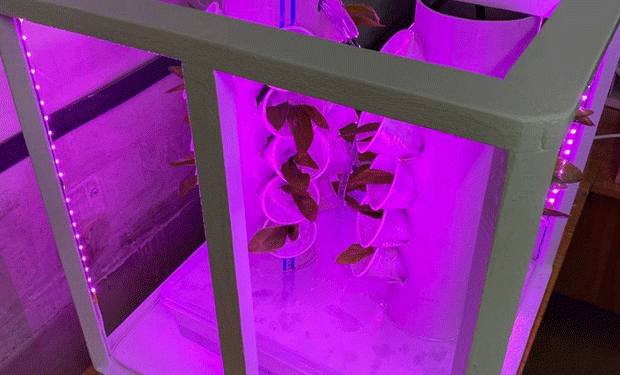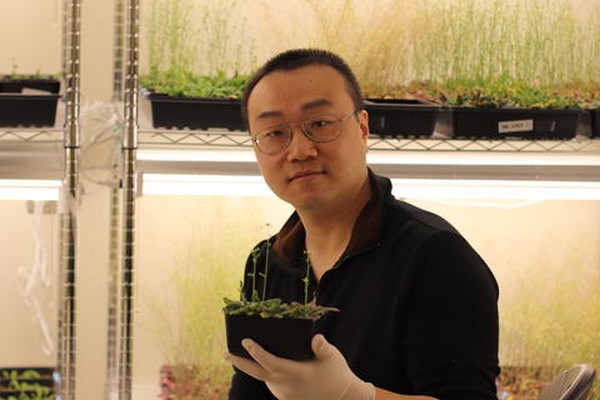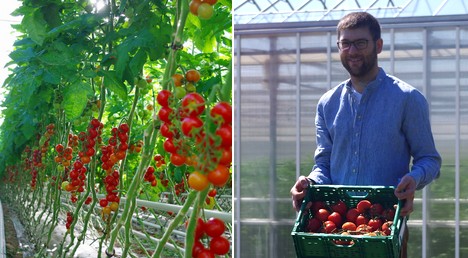The concept of hydroponics dates back to ancient times, with the Hanging Gardens of Babylon considered an early example of soil-free agriculture. Today, hydroponics has evolved into a highly efficient farming method, enabling plants to grow in mineral-rich water solutions instead of soil.
Key benefits include:
- High Yield: Increased productivity compared to traditional farming.
- Water Efficiency: Up to 90% less water usage.
- Land Use Optimization: Suitable for urban and limited spaces.
- Sustainability: Reduced reliance on chemical fertilizers and pesticides.
SEMIRAMIDA: A Kazakhstan Hydroponics Success Story
- Origin of SEMIRAMIDA
In 2020, Oksana Mun, a physicist and educator, teamed up with students and engineers to develop a prototype hydroponic system. Collaborating with industry experts, including Vladimir Popov and Kamille Zamaliyev, the team created SEMIRAMIDA—a compact, automated hydroponic farm designed for urban homes. - Features of SEMIRAMIDA’s Hydroponic System
- Design: A cube-shaped garden supporting up to 48 plants.
- Soil-Free Growth: Uses mineral wool instead of soil.
- Automated Control: Managed via a mobile app for nutrient delivery and lighting.
- Sustainability: Saves water and electricity, with minimal maintenance required.
- Cost-Effective Solution
The production cost per unit is approximately 50,000 KZT ($220 USD). Users can grow strawberries, lettuce, and herbs efficiently, making it ideal for both personal use and small-scale commercial ventures.
Hydroponics for Food Security and Resource Conservation
Hydroponic systems like SEMIRAMIDA address critical challenges:
- Water Scarcity: In a country like Kazakhstan, where water resources are unevenly distributed, hydroponics can save up to 756,000 liters annually per 1,500 kg of produce compared to traditional farming.
- Food Security: Localized production reduces reliance on imports and mitigates supply chain disruptions.
- Sustainability: Compact setups allow urban households to participate in sustainable agriculture, reducing carbon footprints and promoting self-sufficiency.
Future Outlook for SEMIRAMIDA
SEMIRAMIDA aims to scale production from 100 to 10,000 units per month while expanding its range to include crops like potatoes and eggplants. Plans also include setting up showrooms to educate consumers about hydroponics’ simplicity and benefits. With increasing demand and strategic partnerships, the startup is well-positioned to make a significant impact on urban agriculture in Kazakhstan and beyond.
Hydroponics represents a sustainable, efficient solution to modern agricultural challenges, and SEMIRAMIDA’s innovative systems bring this technology into urban homes. By enabling individuals to grow fresh produce with minimal resources, SEMIRAMIDA contributes to food security, water conservation, and environmental sustainability. This startup exemplifies how innovation can transform local challenges into global opportunities.










